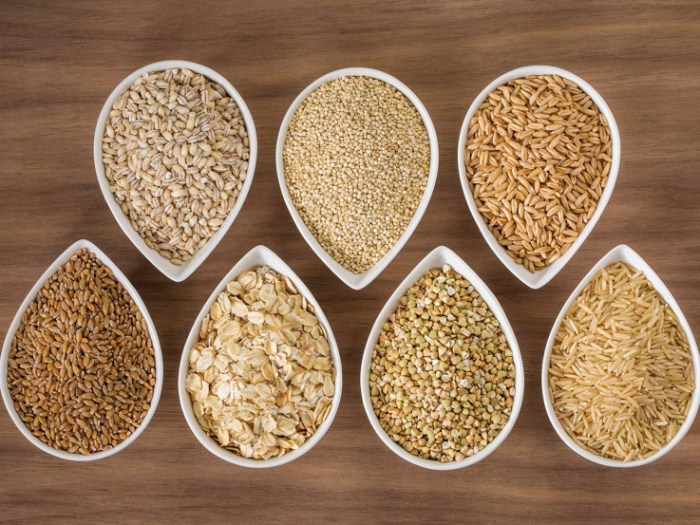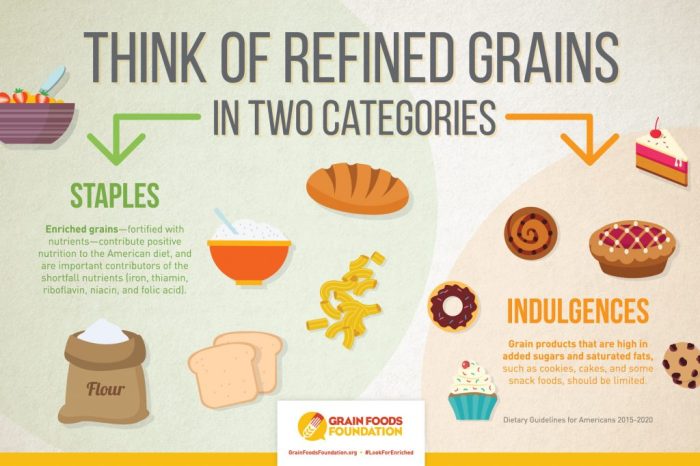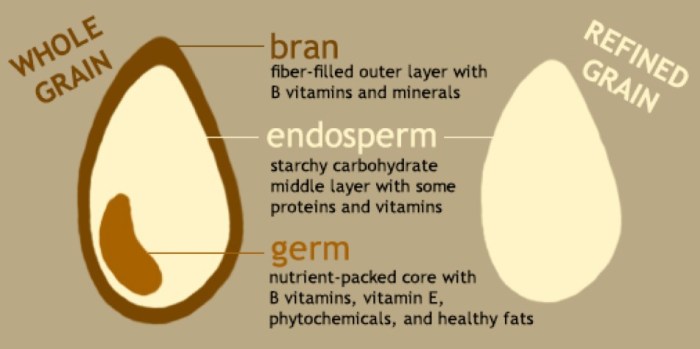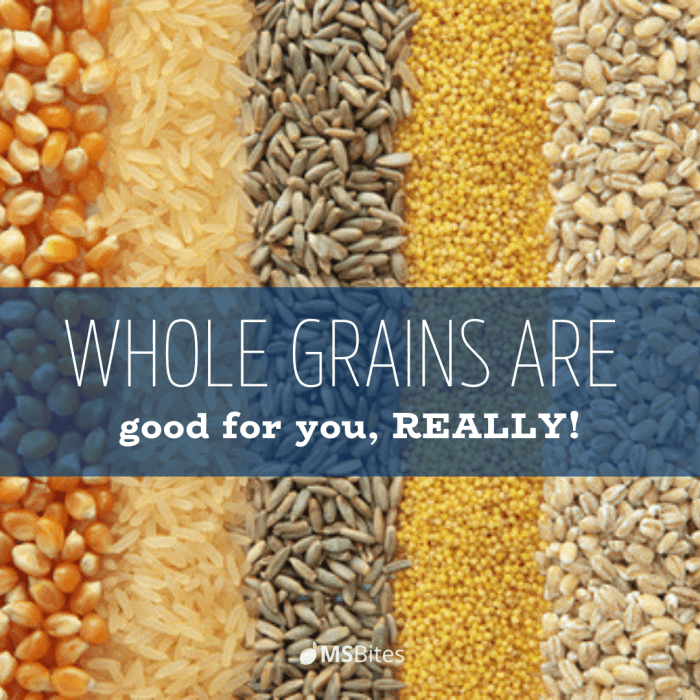The refining of whole grains removes vitamins minerals and fiber. – The refining of whole grains removes vitamins, minerals, and fiber, a crucial process that has significant implications for our health. Whole grains are a rich source of essential nutrients, but the refining process strips away these valuable components, leaving behind a product that is less nutritious and potentially harmful.
This article delves into the nutritional value of whole grains, the steps involved in the refining process, the health risks associated with consuming refined grains, and alternative options that provide the full benefits of whole grains.
Nutritional Value of Whole Grains: The Refining Of Whole Grains Removes Vitamins Minerals And Fiber.

Whole grains are a valuable source of essential nutrients that contribute to a healthy diet. They are packed with vitamins, minerals, and fiber, all of which play crucial roles in maintaining overall well-being.
| Nutrient | Amount per 100g |
|---|---|
| Calories | 363 |
| Carbohydrates | 73g |
| Protein | 13g |
| Fat | 5g |
| Fiber | 12g |
| Vitamin B1 (Thiamin) | 0.4mg |
| Vitamin B2 (Riboflavin) | 0.1mg |
| Vitamin B3 (Niacin) | 5.1mg |
| Vitamin B6 (Pyridoxine) | 0.4mg |
| Vitamin E | 0.6mg |
| Iron | 4.7mg |
| Magnesium | 176mg |
| Potassium | 429mg |
Vitamins, minerals, and fiber are essential for maintaining a healthy body. Vitamins are organic compounds that are required in small amounts for various bodily functions, including energy production, metabolism, and immune function. Minerals are inorganic elements that are also essential for various bodily functions, such as bone health, blood clotting, and muscle function.
Fiber is a type of carbohydrate that cannot be digested by the body. It helps to regulate blood sugar levels, promote a healthy digestive system, and reduce the risk of chronic diseases.
The Refining Process

The refining process of whole grains involves removing the outer layers of the grain, known as the bran and germ, to produce refined grains. These layers are rich in vitamins, minerals, and fiber.The refining process typically involves the following steps:1.
-
-*Cleaning
The grains are cleaned to remove dirt and debris.
- 2.
- 3.
- 4.
- 5.
-*Tempering
The grains are moistened to make them easier to mill.
-*Milling
The grains are passed through a series of rollers to break them down into smaller pieces.
-*Sifting
The broken grains are sifted to separate the endosperm (the starchy part of the grain) from the bran and germ.
-*Polishing
The endosperm is polished to remove any remaining bran or germ.
The refining process removes a significant amount of the nutrients from whole grains. The bran and germ contain most of the vitamins, minerals, and fiber, so their removal results in a refined grain that is lower in these essential nutrients.

FAQ Section
Why is fiber important in our diet?
Fiber is essential for maintaining a healthy digestive system, regulating blood sugar levels, and reducing the risk of chronic diseases such as heart disease and diabetes.
What are some good sources of whole grains?
Good sources of whole grains include brown rice, quinoa, oats, barley, and whole-wheat bread.
How can I incorporate more whole grains into my diet?
You can incorporate more whole grains into your diet by choosing whole-grain bread, pasta, and cereals. You can also add whole grains to soups, salads, and baked goods.

